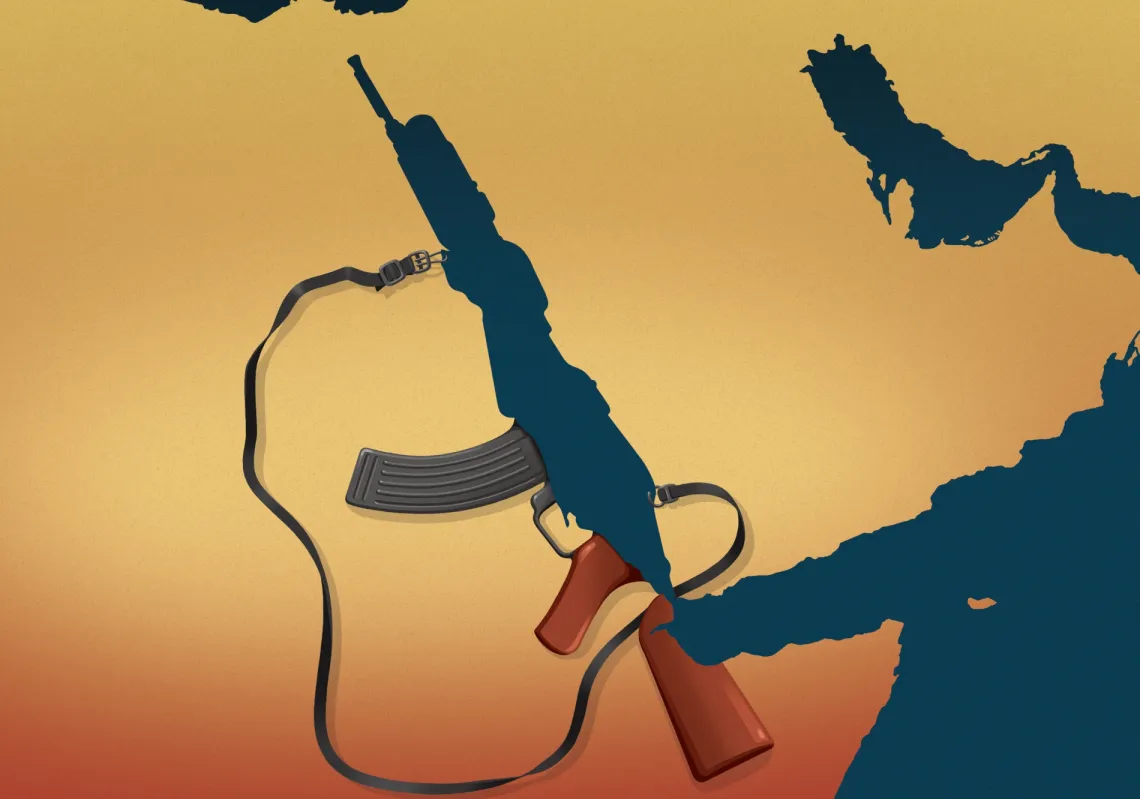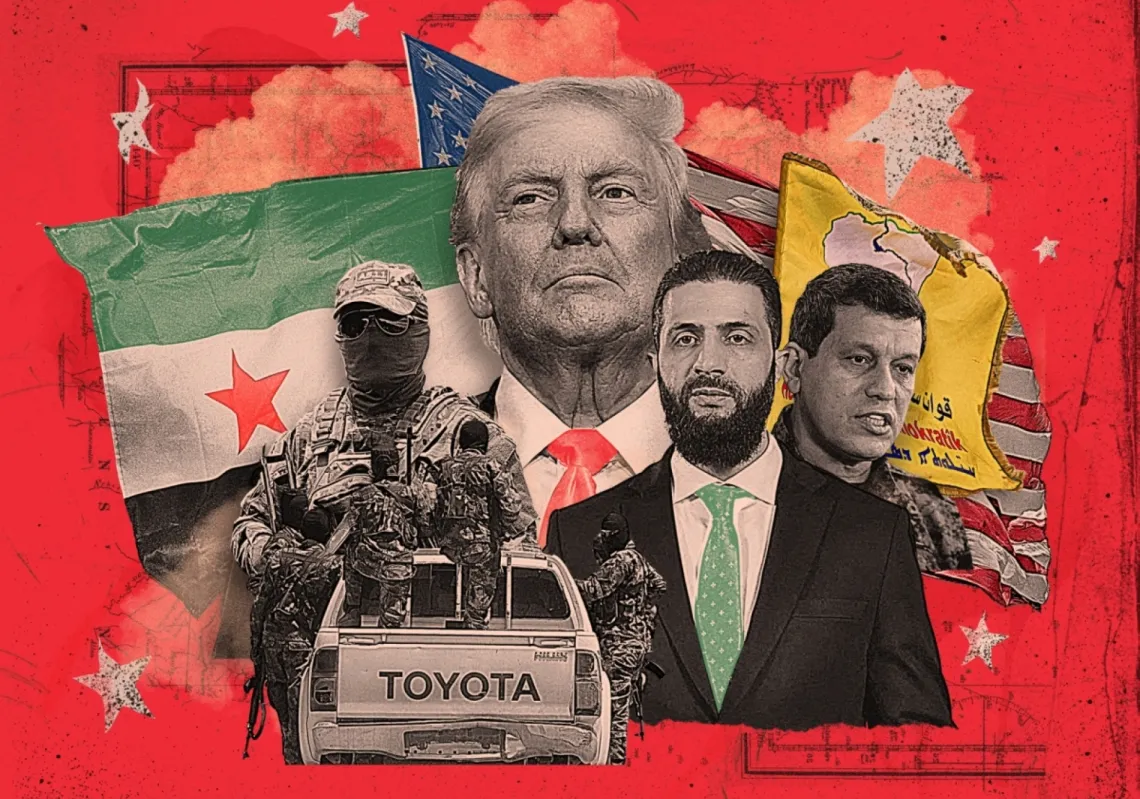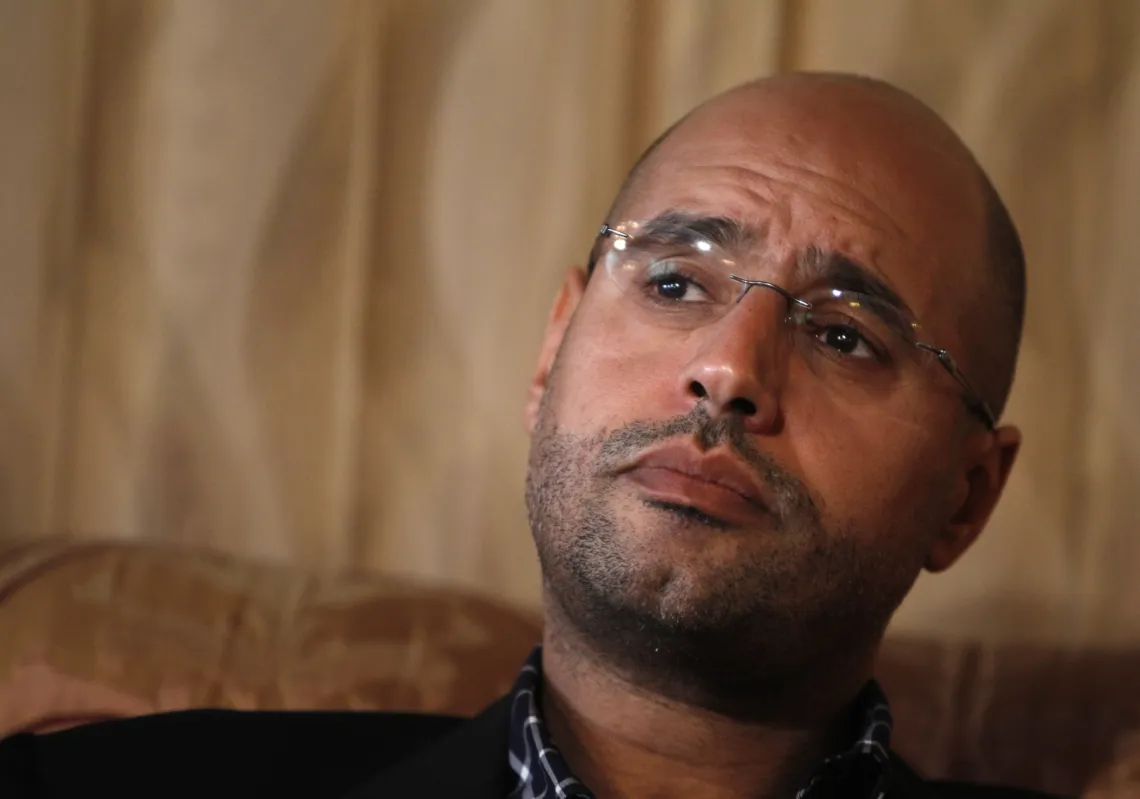Critically acclaimed author Samantha Harvey has won this year’s prestigious Booker Prize for her novel Orbital. Set on a craft inspired by the International Space Station, it lyrically tells the story of how the inhabitants' perspective towards Earth changes over and above their vantage point granted by its position high above the ground.
The author of five other books, who has been called the Virginia Woolf of her generation, met with Al Majalla and talked about capturing characters in settings as diverse as space and the 15th century. This is the conversation.
How did you weave the themes of time, human connection, and Earth's fragility into the story?
I think these things are, to an extent, all simply implied by the project of the novel. If you are writing about the Earth as seen from space, you will contend with its fragility, its aloneness, its beauty, and the contradictions that arise because while the Earth is fragile, it’s also not—it’s a rock orbiting a star. Its fragility lies only in its suitability to sustain life.
And its aloneness is only a matter of perspective since it’s one of countless billions of planets in the universe. I wanted the novel to try to capture a sense of these boundless contradictions that arise when you gain just a little distance from our lovely planet.
As for time, I think the book's structure tries to articulate something of what I wanted to convey about the nature of time when in low-earth orbit, travelling around the planet 16 times a day, and the sun constantly rising and setting. Encoding this exploded nature of time into the novel’s structure felt appropriate since it is so fundamental to the book.

What was your process for developing the distinct personalities and backgrounds of the six astronauts?
To an extent, my creation of these characters was boundaries. The spacecraft in the book is based on the ISS, and there are always US astronauts and Russian cosmonauts on board, so I needed to reflect that in my characters. Then, there will be astronauts from other contributing nations. For my narrative, I chose Japan, Italy, and—a little fancifully—Britain because I’m British.
Once I had this basic information about them, I developed them as I always develop characters: not from the outside in but from the inside out, thought by thought, feeling by feeling.
I discovered that Shaun, the US astronaut, was homesick and missing his wife. This, in turn, told me something about his marriage. I discovered that Chie, the Japanese astronaut, was grieving something—her mother. And as one of Japan's first female fighter pilots, I had to explain more about her nature to want to aspire to this goal.
I learned that Nell, the British astronaut, had a husband in Ireland from whom she felt quite estranged—but why? Each bit of understanding of a character raises a new question that prompts a new understanding.
How did you ensure that each character's voice and perspective in the novel were unique and authentic?
Maybe the uniqueness has to do with the process I describe above. I don’t like to use ‘off the shelf’ characters, though this can be helpful at times, but rather build my characters out cell by cell.
When I write, I’m always interested in other people’s minds. Can I imagine my way into a mindset that isn’t my own? Of course, the characters are my inventions, so their mindsets are my own. But that’s a wider discussion. I don’t know if the characters are authentic, i.e. if they are plausible astronauts.
I often worried that I’m so constitutionally un-astronaut-like in myself—a thinker, not a doer, scared of heights, uncomfortable in small spaces, cowardly, not very good at adapting, not very practical, risk-averse, unadventurous—that it would be too great a leap for me to immerse myself into an astronaut’s skin.
But that was also an enticing challenge because deep in me is a huge desire to go into space, which I’ll never fulfil, so here was my way of getting there.
How did you balance the astronauts' personal struggles with the broader themes of the story as the novel delves into their psychological and emotional challenges?
Although novels typically revolve around characters, I didn’t want this to be especially about the characters. I wanted my characters to be part of the larger dynamic flow of the narrative so we could dip in and out of their heads, their lives, and their concerns, just as we could dip down to see the city lights of Europe at night or the turquoise coastlines of the Indian Ocean.
I wanted to establish a kind of equivalence between people and things, to be arrested by Chie’s grief and equally by the sight of the auroras. We humans are not everything. We are part of something, of many things, and many things are part of us.
Can you explain how you portrayed the impact of isolation and confinement on the characters' mental states?
Perhaps focusing on the events of a single day helps draw attention to the reality of life on a space station—at least as I imagine it. We experience the mundane routines of work, exercise, and lunch.
We are with them in their cramped quarters. We see them in their grief and loneliness, as well as in their rapture. Their isolation is what makes their days both repetitive and grand; it’s a privileged isolation—one that affords experience and perspective that the vast majority of us will never know. I wanted to convey the contradiction of their confined days as being both banal and extraordinary.
What inspired you to set The Western Wind in a small village in 1491?
I wanted to write about confession first and foremost – that is, Catholic confession whereby the whole theatre of human life is played out between two people in the confession box. This seems mystical and potent to me.
The novel was never intended to be historical, but somehow, in tracing the setting for my confessional, and kept going back in time until I reached the late Middle Ages, before the Reformation complicated things. I then decided that 1491 was a good symbolic date—a year before Columbus discovered the Americas, the year that Henry VIII was born.
Therefore, it was set just before everything changed in the Western world—before the paradigm shifted and before the birth of what we might now call the ‘modern age’.











